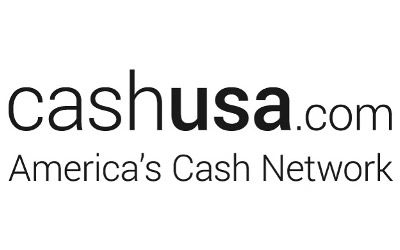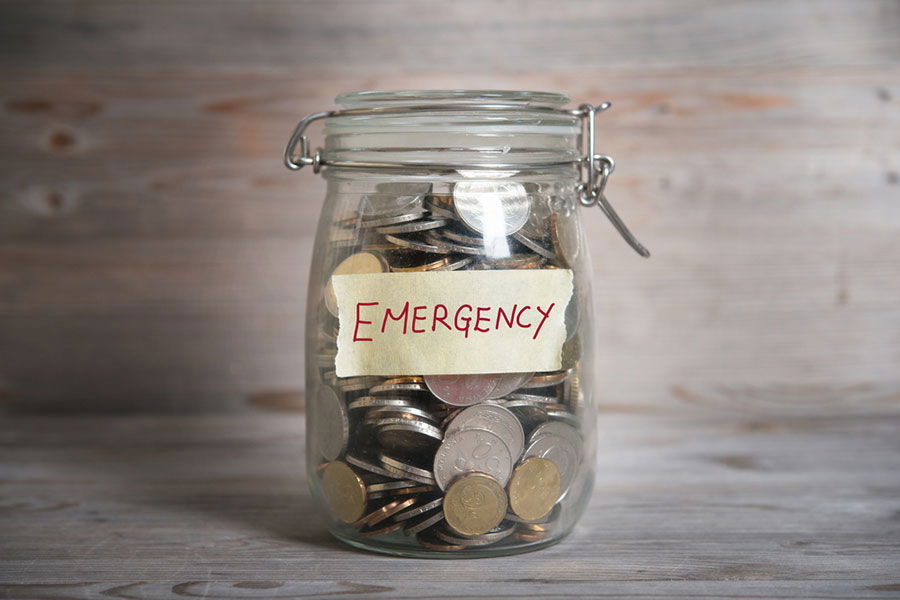Nearly 40% of Americans can’t cover a $400 emergency expense, forcing many to turn to high-cost borrowing options. If you have bad credit, finding a loan that won’t trap you in a cycle of debt can be even harder.
Cash advance loans provide quick cash when you’re in a financial bind, but many come with high fees and short repayment terms. Some lenders, however, offer more reasonable options—even if your credit isn’t perfect.
5 Cash Advance Loans for Bad Credit to Consider
Short-term cash advance loans can provide fast cash in an emergency, even if you have bad credit. These loans have quick approvals and short repayment terms, but they often come with high fees.
Let’s break down five of the best cash advance loans for bad credit, so you can get the money you need without overpaying.
MoneyMutual
MoneyMutual makes it easy to get quick cash, offering loans up to $2,500 with funding in as little as 24 hours. It connects you with a network of lenders, simplifying the search—especially if you have bad credit.
To qualify, you’ll need to show at least $800 in monthly income. The platform isn’t available in New York, and rates can vary, so be sure to read the loan terms carefully before accepting an offer.
CashUSA
CashUSA offers loans from $500 to $10,000, making it a flexible option for a wide range of emergency expenses. APRs run from 5.99% to 35.99%, with repayment terms as long as 72 months—rare for short-term loan platforms.
The application is quick, and approved funds can hit your bank account as soon as the next business day. Just keep in mind that your credit profile will play a big role in the rate you’re offered.
CashAdvance
CashAdvance is a solid option if you need a smaller loan—up to $1,000—and want a fast, easy application process. It connects you with a network of lenders, so you can get matched quickly.
To qualify, you’ll need to be at least 18 and earn at least $1,000 per month after taxes. Repayment is typically pulled straight from your checking account. Just be sure to check the loan terms carefully, as fees can add up with short-term loans.
Bad Credit Loans
BadCreditLoans helps people with poor credit find emergency funding, offering loans from $500 to $5,000. The platform has been connecting borrowers with lenders since 1998 and often delivers funds as soon as the next business day.
Rates range from 5.99% to 35.99% based on your credit profile. While it’s a solid option for bad credit borrowers, be sure to review the loan terms closely so you’re not stuck with payments you can’t afford.
PersonalLoans.com
PersonalLoans.com stands out for offering loan amounts up to $35,000—ideal if you need more than just a quick cash fix. Loans are available nationwide, with APRs between 5.99% and 35.99% depending on your credit.
The application is simple and funds can arrive quickly, though larger loans may take a bit longer to process. Just make sure you understand the rates, terms, and fees before accepting an offer.
How to Choose the Best Cash Advance Loan
Not all cash advance loans are created equal. Some have lower fees, better terms, or faster funding. Before borrowing, keep these key factors in mind:
- APR & Fees: High interest rates and extra fees can make a loan far more expensive than it seems. Always check the total cost before accepting an offer.
- Repayment Terms: Short-term loans often require full repayment within a few weeks. Make sure the timeline works for your budget.
- Funding Speed: If you need cash fast, look for lenders offering same-day or next-day deposits.
- Lender Reputation: Read customer reviews and verify that the lender is licensed in your state. Avoid lenders with hidden fees or aggressive collection tactics.
Alternatives to Cash Advance Loans
A cash advance loan isn’t your only option. Before committing to high fees and short repayment terms, consider these alternatives that may be more affordable and less risky.
- Credit Card Cash Advances: These let you withdraw cash from your credit card, but they come with high fees and interest that starts immediately—often 20% or more. While still expensive, they can be a better option than payday loans.
- Personal Loans from Credit Unions: Many credit unions offer small personal loans with lower rates and better repayment terms than payday lenders. Some even provide emergency loan programs for members.
- Borrowing from Friends/Family: If possible, a loan from someone you trust can save you from high-interest debt. Be upfront about repayment expectations to avoid straining relationships.
- Payment Plans with Creditors: If you’re struggling with a bill, call the company before taking out a loan. Many utility providers, medical offices, and landlords offer hardship plans or extended payment options.
Exploring these alternatives can help you cover unexpected expenses without falling into a cycle of debt.

How to Break the Cycle of High-Interest Debt
Relying on high-interest loans can make it harder to get ahead financially. Taking small steps now can help you avoid the need for costly borrowing in the future.
- Build an Emergency Fund: Even saving $20 a month can create a financial cushion, so you’re not forced to take out high-interest loans when unexpected expenses arise.
- Improve Your Credit Score: A better credit score opens the door to lower-cost loan options. Pay bills on time, keep credit card balances low, and check your credit report for errors. If you need help, check out our free Do-It-Yourself Credit Repair Guide or explore top credit repair companies for professional assistance.
- Use Credit Counseling: Nonprofit credit counseling services offer free or low-cost help with budgeting, debt repayment, and financial planning. They can also assist with debt management programs that may lower interest rates.
Taking these steps now can help you break the cycle of high-interest debt and improve your long-term financial stability.
How We Chose These Cash Advance Loans
We reviewed each lender using the following criteria to ensure our recommendations are safe, relevant, and helpful for borrowers with bad credit:
- Licensing and Reputation – We only included lenders that are licensed and have a track record of legitimate service.
- Minimum Requirements – All lenders accept applicants with less-than-perfect credit and reasonable income thresholds.
- APR and Funding Speed – We looked for lenders that offer competitive rates and fast access to funds.
- Transparency and Reviews – We prioritized platforms with clear terms, upfront fee disclosures, and strong customer feedback.
Final Thoughts
When you’re in a financial bind, a cash advance loan might seem like the quickest fix—but it can also be one of the most expensive. High fees and short repayment terms can make it easy to fall into a cycle of debt.
Before borrowing, compare lenders carefully, explore alternative options, and have a plan to repay the loan on time. Taking small steps—like building an emergency fund and improving your credit score—can help you avoid costly loans in the future.
If you do need a loan, make sure you choose a reputable lender with clear terms and no hidden fees.
Frequently Asked Questions
Will a cash advance loan affect my credit score?
It depends on the lender. Some report payments to credit bureaus, which can help or hurt your score based on how you repay. Others don’t report at all, but missed payments could still lead to collections and damage your credit.
What’s the difference between a payday loan and a cash advance loan?
Both are short-term loans with high fees, but payday loans usually require full repayment by your next paycheck. Some cash advance loans offer slightly longer repayment terms.
Can I get a cash advance loan if I’m unemployed?
Some lenders accept alternative income sources, like unemployment benefits or Social Security, but you’ll need proof of regular income to qualify.
How fast can I get a cash advance loan?
Many lenders offer same-day or next-business-day funding if approved. The speed depends on the lender and your bank’s processing times.
What happens if I can’t repay my cash advance loan on time?
Late payments can result in extra fees, higher interest, and debt collection efforts. Some lenders offer extensions, but these usually come with additional costs.
How can I tell if a lender is legit?
Check online reviews, verify licensing with your state’s financial regulator, and avoid lenders that pressure you to borrow or hide fees. A reputable lender will clearly outline loan terms upfront.









